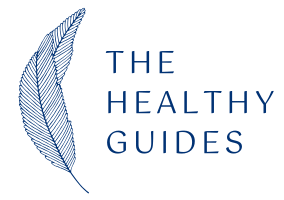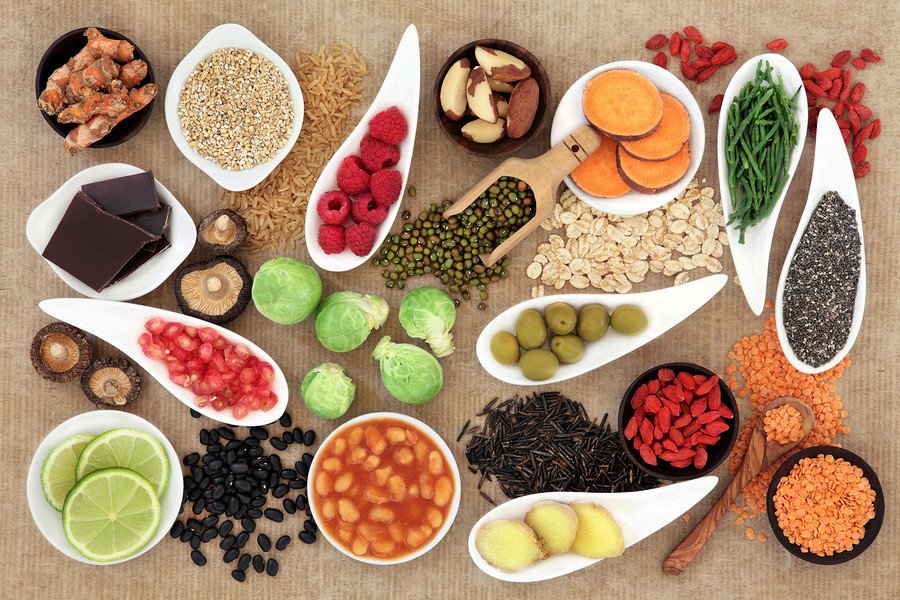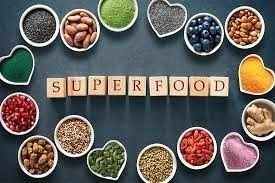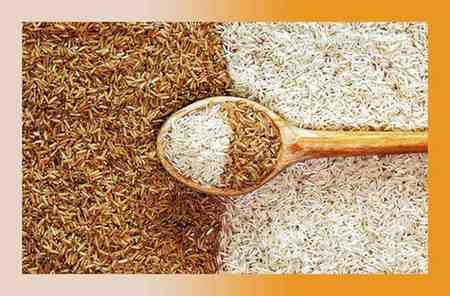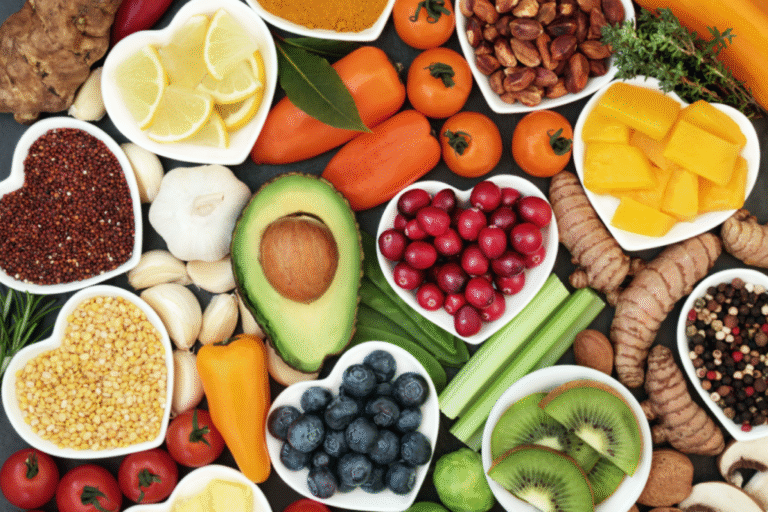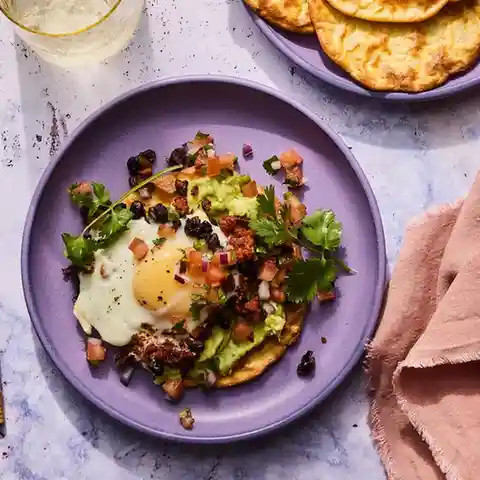Real Nutrition Guide, Real Results
Looking for a nutrition guide for optimal health that doesn’t sound like a science lecture or guilt trip? You’re in the right place. In this guide, we’re breaking down the essentials of balanced meals, practical nutrition tips, and smart habits that actually fit into real life—whether you’re meal prepping for the week or just trying to make sense of what “eating healthy” really means.
In this guide, we’ll break down everything you need to know about nutrition in a simple, real-world way. No fluff. No BS. Just practical information, honest advice, and a nudge (or two) in the right direction.
Ready to learn how to fuel your body smarter? Let’s get into it.
🧠 What Is Nutrition, Really?
Nutrition is just the science of how your body uses food — and trust us, it’s working hard behind the scenes. Every bite you take either supports or stresses your health.
Your body runs on macronutrients and micronutrients:
- Macronutrients: These are your big three — protein, carbs, and fats. They give you energy and help build and repair the body.
- Micronutrients: Think vitamins and minerals — the unsung heroes that keep your immune system, brain, hormones, and everything else running smoothly.
- Water: Yes, it counts. Hydration is crucial for digestion, temperature control, and even your mood.
When you eat well, your body thrives. You sleep better. When nutrition goes off track — hello, processed foods and sugar overload — things start to break down. Slowly at first, then all at once. That’s why following a nutrition guide for optimal health is so important — it keeps your body functioning at its best long before any issues show up.
🚀 Why Nutrition Guides Matters (More Than You Think)
It’s easy to overlook nutrition until something goes wrong — like brain fog, fatigue, skin issues, or unexpected weight gain. But the truth is, following a solid nutrition guide for optimal health can help you prevent most chronic health problems before they even start. Eating well isn’t just about looking good — it’s about feeling your best from the inside out, every single day.
Here’s what good nutrition helps with:
- Maintaining a healthy weight (without obsessing)
- Reducing the risk of heart disease, diabetes, and certain cancers
- Boosting your energy and focus (yes, that 3 p.m. slump is avoidable)
- Supporting strong immunity (less sick days, more life)
- Balancing hormones and improving mood
- Promoting healthy aging and longevity
It’s not about being “perfect.” It’s about being intentional.
🌾 What a Balanced Diet Actually Looks Like
No, you don’t have to eat salad every day or swear off carbs forever. A balanced diet is more flexible (and fun) than that.
Here’s what it includes:
- Whole foods: The fewer ingredients on the label, the better.
- Colorful fruits and veggies: Different colors = different nutrients. Eat the rainbow!
- Lean proteins: Chicken, fish, tofu, eggs, beans, lentils — whatever works for your lifestyle.
- Healthy fats: Think avocado, nuts, seeds, olive oil, and fatty fish like salmon.
- Whole grains: Quinoa, oats, brown rice, barley — fiber is your friend.
And yes, you can absolutely have dessert. It’s all about balance, not restriction.
⚡ The Power of Protein
Let’s talk about the superstar of satiety: protein.
Whether you’re trying to lose weight, gain muscle, or just feel full longer, protein should be front and center on your plate.
Why? Because protein:
- Builds and repairs tissue
- Keeps you fuller longer
- Helps regulate hormones
- Stabilizes blood sugar
Don’t just save it for dinner. Include protein in every meal — even breakfast. (Eggs > sugary cereal, every time.)
🧃 Stop Falling for Diet Labels
“Low-fat.” “Sugar-free.” “Keto-approved.” These might sound healthy, but marketing isn’t nutrition science.
In fact, many “diet” foods are ultra-processed and full of artificial junk that does your body no favors.
Here’s what to watch for:
- Low-fat yogurt – often loaded with sugar
- Protein bars – some are basically candy bars in disguise
- Fruit juices – stripped of fiber and spiked with sugar
Instead, focus on real food. A banana with peanut butter is better than any snack bar out there.
🥤 Hydration — The Forgotten Nutrient
Here’s a wild fact: being just 1–2% dehydrated can affect your memory, focus, and mood. Dehydration also often feels like hunger, which leads to mindless snacking.
Hydration tips:
- Start your day with a glass of water
- Carry a reusable water bottle (bonus: it’s eco-friendly)
- Add lemon, mint, or cucumber to your water for flavor
- Herbal teas count too!
Aim for around 8 cups a day, more if you’re active or live somewhere hot.
🍳 Meal Ideas That Make Healthy Eating Easy
Let’s get practical. Here are some go-to meals that tick all the nutrition boxes:
Breakfast Ideas from a Nutrition Guide for Optimal Health
- Overnight oats with chia, berries & Greek yogurt
- Scrambled eggs with spinach and avocado on whole grain toast
Lunch Ideas from a Nutrition Guide for Optimal Health
- Grilled chicken salad with mixed greens, olive oil & lemon dressing
- Lentil soup with a side of whole grain bread
Dinner Ideas from a Nutrition Guide for Optimal Health
- Salmon with roasted veggies and quinoa
- Chickpea curry with brown rice
Snacks Ideas from a Nutrition Guide for Optimal Health
- Apple slices with almond butter
- Hard-boiled eggs
- Hummus with carrot sticks

🧭 Nutrition Myths That Need to Die
Let’s bust a few:
❌ Carbs are the enemy
Nope. Carbs are your brain’s favorite fuel. Just choose whole carbs over refined ones.
❌ Fat makes you fat
Not true. Healthy fats actually help you burn fat, balance hormones, and feel full longer.
❌ Skipping meals helps you lose weight
That strategy usually backfires. It slows your metabolism and often triggers overeating later in the day.
❌ You need to detox
Actually, your body already has a detox system built-in. The liver and kidneys do a great job cleansing your system daily — no expensive juice cleanse required. Just drink water and eat whole foods.
🌱 Nutrition Guide for Every Life Stage, healthy eating habits
Your nutritional needs change as you grow — and they’re unique to YOU.
👶 Kids: Focus on growth-friendly nutrients like calcium, iron, and healthy fats.
💪 Adults: Prioritize protein, fiber, and antioxidants to fuel energy and productivity.
👵 Older adults: Add calcium, vitamin D, and B12 for bone and brain support.
Whether you’re 25 or 65, the goal is the same: nourish your body so it works with you, not against you.
🧠 Your Mood and Mind Need Nutrition Too
Did you know what you eat can literally change how you feel?
The gut-brain connection is real. A poor diet can lead to brain fog, irritability, and even symptoms of anxiety and depression.
Foods that boost mood:
- Fatty fish (omega-3s)
- Dark leafy greens
- Fermented foods (for gut health)
- Berries
- Dark chocolate (yes, really!)
🧳 How to Eat Healthy When You’re Busy.
You’re not lazy — life is just hectic. Here are some fast strategies:
- Meal prep on Sundays — even just chopping veggies can make healthy choices easier all week. It’s a small step that supports any nutrition guide for optimal health.
- Keep grab-and-go snacks handy — think fruit, nuts, yogurt. These little choices help you stay aligned with your nutrition goals for optimal health when life gets hectic.
- Freeze leftovers for busy nights — your future self will thank you, and your commitment to a nutrition guide for optimal health stays intact, even on your busiest days.
- Stock your kitchen with healthy basics — whole grains, lean proteins, spices, and oils. A well-stocked pantry is the unsung hero of any successful nutrition guide for optimal health.
Healthy eating doesn’t have to be fancy. It just has to be consistent.
🧩 Final Thoughts: Keep It Simple, Keep It Real
You don’t need to follow a perfect plan or eat like a celebrity. You just need to pay attention to how food makes you feel — physically, mentally, and emotionally. A realistic nutrition guide for optimal health is all about tuning into your body and making choices that support your well-being, not someone else’s highlight reel.
Start small:
- Add one veggie to your plate
- Drink more water
- Cook at home once more each week
Little things add up. And before you know it, you’re not “on a diet” — you’re just living better.
✨ Bonus: Want a 7-Day Meal Plan?
👉 Check out our Healthy Weekly Meal Planner here
👉 Explore more nutrition tips on TheHealthyGuides
💡 FAQs
Q: How many calories should I eat per day?
A: It depends on your age, gender, activity level, and goals. Most adults need between 1,800–2,500 calories/day.
Q: Are supplements necessary?
A: Whole foods come first. But if you’re low in certain vitamins (like D, B12, iron), supplements can help — talk to a doctor.
Q: What’s the best diet for weight loss?
A: The one you can stick to. Focus on whole foods, portion control, and consistency over extremes.
Q: Can I eat carbs and still be healthy?
A: Absolutely! Choose whole grains like oats, quinoa, and brown rice over refined carbs like white bread.
Want more ideas on structuring meals for health? Our diet blog post walks you through food choices, portion control, and smart swaps that complement this nutrition guide for optimal health perfectly.
